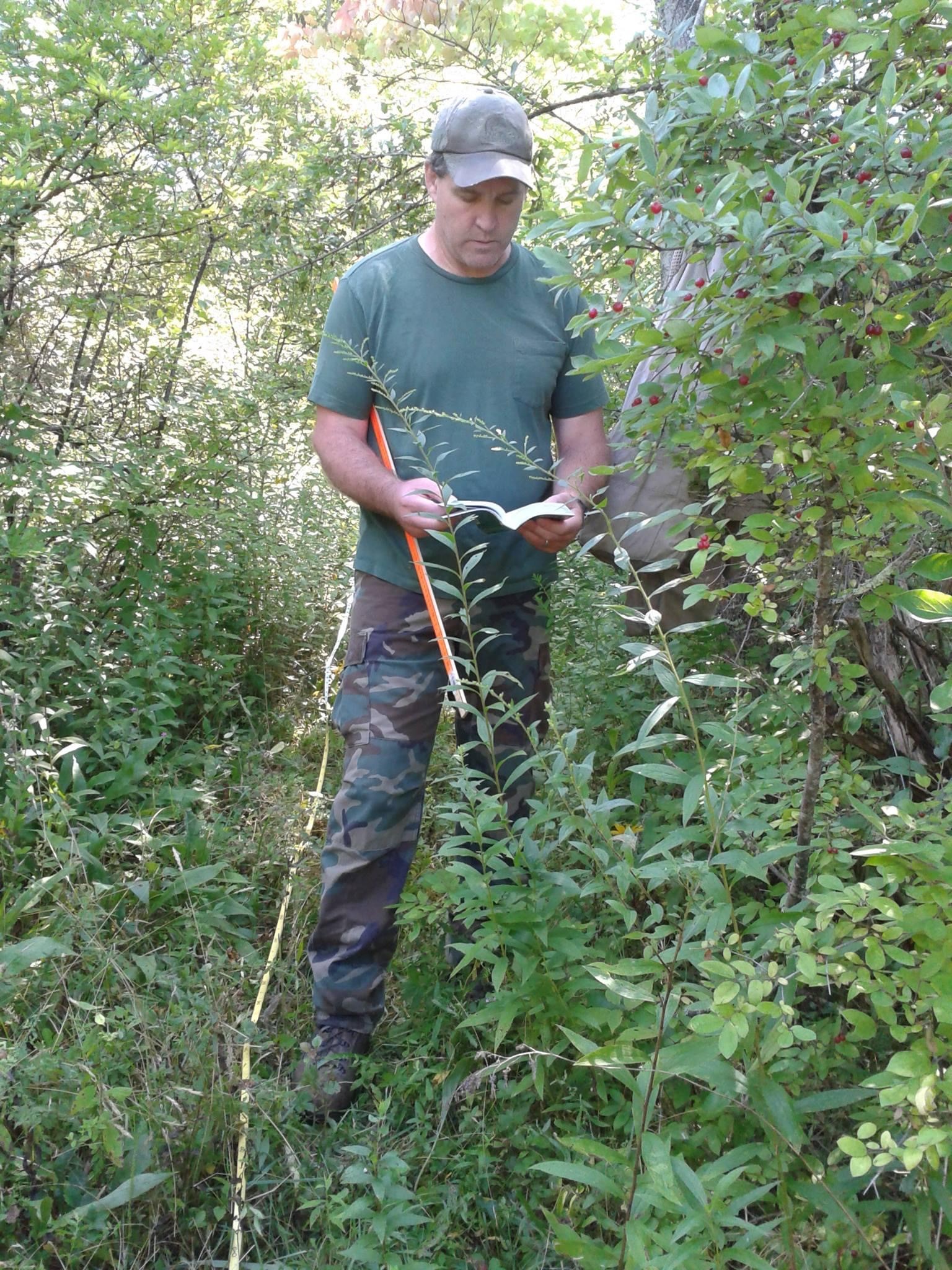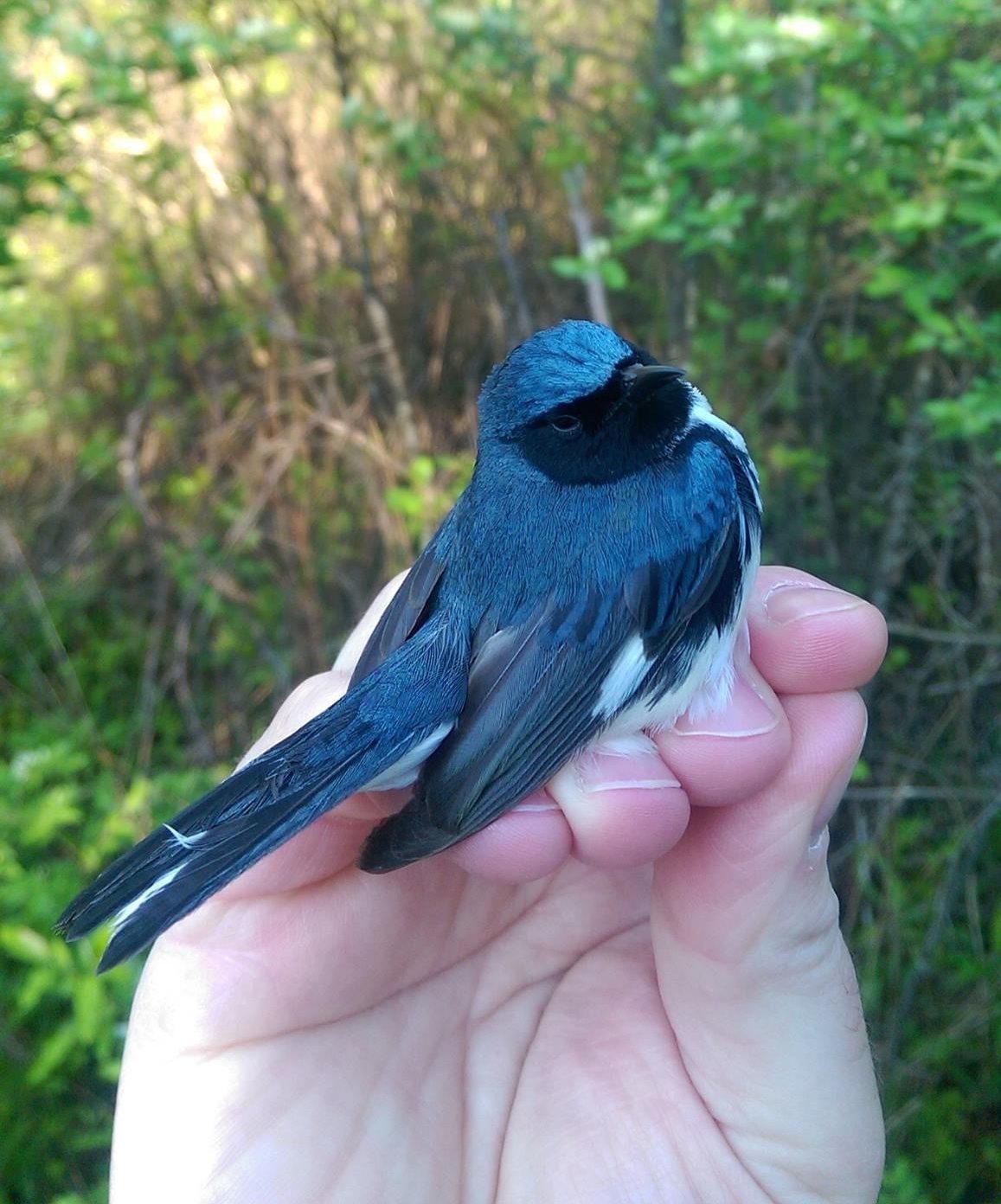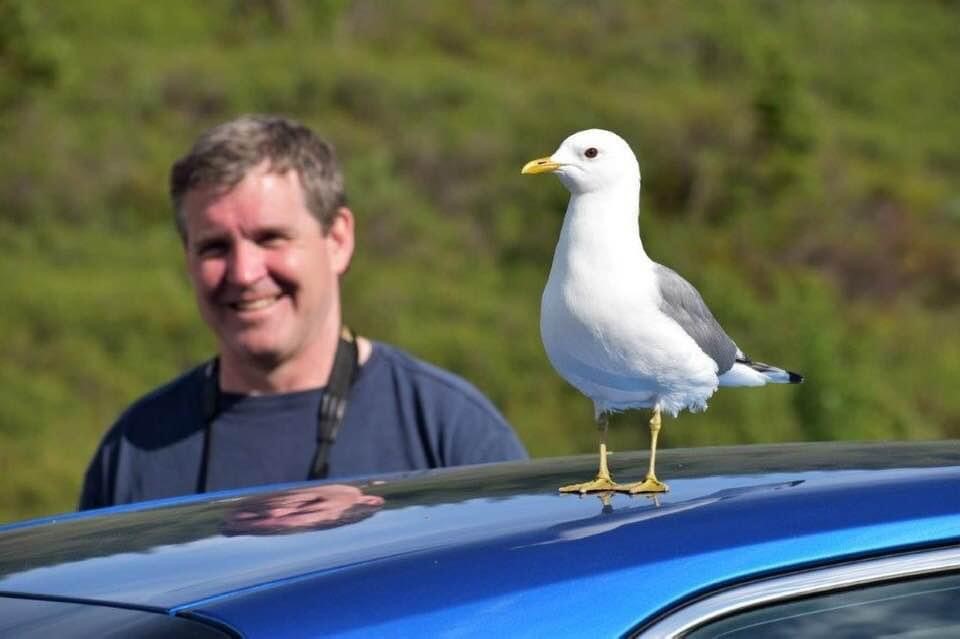Adding to our occasional series on Biology department faculty and their research, Biology Professor Dr. Robert Smith (B.S., Alma College; M.S., Central Michigan University; Ph.D., The University of Southern Mississippi; Biology faculty member since 2003) summarizes below his research program, including Scranton students who contributed to this work.

My research emphasizes the behavior, ecology and conservation of landbird migrants. Over half of all landbirds breeding in the United States and Canada migrate to tropical wintering areas in Mexico, Central and South America as well as the islands in the Caribbean. Through the course of their movement, these long-distance migrants travel thousands of kilometers, often through unfamiliar habitats and uncertain weather, stopping at periodic intervals (stopover sites) to rest and rebuild energy stores necessary for fueling a continued migration. Migration is a high-risk, energetically costly event that takes its toll in increased mortality, especially among the young, naïve birds of the year. How migrants respond to the energy demand of long-distance flight and cope with contingencies that arise throughout the migratory period is key to their survival and successful reproduction and constitutes the basic questions behind my research program at The University of Scranton.
 I am especially interested in factors influencing the timing of arrival and condition upon arrival at both migratory stopover sites and northerly breeding grounds. Research areas we are currently emphasizing include age- and sex-dependent arrival ecology, the influence of weather and climate on migratory timing and the fitness consequences of habitat use by migrating landbirds. I work with students from the University of Scranton and colleagues from both the University of Scranton and Penn State Scranton to capture, measure and release landbirds during both the spring and fall migratory periods at Lackawanna State Park.
I am especially interested in factors influencing the timing of arrival and condition upon arrival at both migratory stopover sites and northerly breeding grounds. Research areas we are currently emphasizing include age- and sex-dependent arrival ecology, the influence of weather and climate on migratory timing and the fitness consequences of habitat use by migrating landbirds. I work with students from the University of Scranton and colleagues from both the University of Scranton and Penn State Scranton to capture, measure and release landbirds during both the spring and fall migratory periods at Lackawanna State Park.
 In addition to being a Co-director of the Environmental Science Program I enjoy teaching courses in ecology, animal behavior, conservation biology and vertebrate biology. I especially enjoy working individually with students on research projects. When not teaching or conducting research I, along with my wife Beth, enjoy visiting family in Michigan, bird watching, hiking, kayaking and biking in northeastern Pennsylvania, and renovating our old farmhouse and barn.
In addition to being a Co-director of the Environmental Science Program I enjoy teaching courses in ecology, animal behavior, conservation biology and vertebrate biology. I especially enjoy working individually with students on research projects. When not teaching or conducting research I, along with my wife Beth, enjoy visiting family in Michigan, bird watching, hiking, kayaking and biking in northeastern Pennsylvania, and renovating our old farmhouse and barn.

